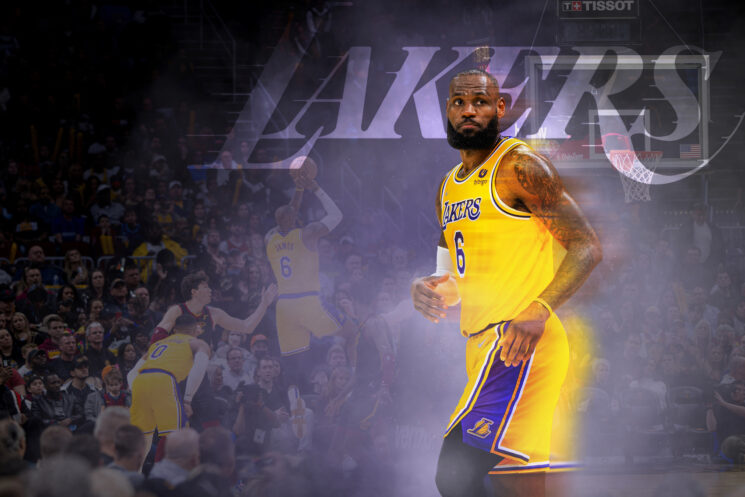
By Shayan Abbasi
A roller coaster. The Lakers season ended on May 22, and with it, one of the greatest underdog stories in National Basketball Association (NBA) history. Starting the season with a 2-10 win-loss record, the Lakers quickly turned it around after the February trade deadline, and quickly became one of the NBA’s best teams. They upset the number 2 seeded Memphis Grizzlies and the number 6 seeded Golden State Warriors to reach the Western Conference finals as the number 7 seed, a feat only accomplished only once before by the 1987 Seattle Supersonics.
The beginning of the season was marked by shortcomings from both offensive and defensive ends. Though LeBron James maintained his remarkable level of play and averaged 30 points per game (ppg), forward Anthony Davis struggled with injuries and point guard Russell Westbrook was inconsistent. This culminated in a 26-30 record for the Lakers before the trade deadline, which, in the tightly-contested Western Conference, was good enough for the 13th seed.
Thanks to the strategic trades by General Manager of the Lakers, Rob Pelinka, the Lakers were able to manufacture a team geared for success. Trading away Russel Westbrook, Kendrick Nunn, Juan-Toscano Anderson and several second-round picks, the Lakers acquired star Minnesota Timberwolves guard D’Angelo Russell, as well as defensive cornerstones in Jarred Vanderbilt and Rui Hachimura. With the team showing promise early on, the Lakers quickly pulled ahead in the Western Conference standings, putting up a 17-9 record to end the season.
The Lakers quickly jumped up the Western Conference standings, from 13th seed to 7th seed. Due to the NBA play-in rules, which states that the 7th and 10th seeds must play each other, the Lakers played the Minnesota Timberwolves in the first game of the postseason. In an overtime thriller, the Lakers beat the Timberwolves 108-102, behind a 30 point effort by LeBron James.
Playing the Grizzlies in the first round of the playoffs, the Lakers were viewed as the underdog team. However, the Lakers soon defied the odds, stealing a game on Memphis’ home court, and winning all home games at Crypto.com arena to win the series 4-2. Guard D’Angelo Rusell and forward Rui Hachimura overperformed, anchoring the defense for the team. Davis was stellar as well, averaging over 4 blocks per game during the series.
The Warriors series was one of the most anticipated playoff matchups. With LeBron James and Stephen Curry continuing their historic rivalry and potentially playing each other for the last time in the postseason, a lot seemed to be at stake. Underlined by the presence of defensive facilitators on both sides, the series soon proved to be a very enjoyable one. The Lakers stole the first game on the Warriors home court, and went on to win 3 out of the next 4 games, to win the series with a final tally of 4-2. For only the second time in NBA history, a 7th seed had advanced to a Conference Finals.
Playing the Denver Nuggets in the Western Conference Finals, the Lakers attempted to continue their Cinderella run. However, the offensive capabilities of the Nikola Jokic and Jamal Murray duo proved to be too much, as Denver went on to sweep Los Angeles in 4 games. Though LeBron capped off the series with a 40-point effort, the Lakers fell short of a Finals appearance.
Overall, the season can be viewed as a success, as the Lakers overcame a 2-10 start and made the sufficient trades to make it to the Western Conference. However, the Nuggets series in particular highlighted adjustments the Lakers need to make for next season, such as investing in a reliable point guard and more three point shooting. Laker nation, the future looks bright!





